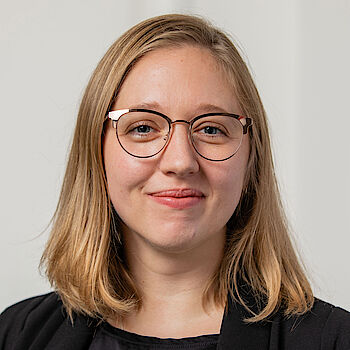Neutral data and objective information are supposed to enable us to understand the past and shape the future. But can data and information really be objective and unbiased? In her workshop at KI-Camp 2021, ECDF professor Rebecca D. Frank (HU Berlin) argued for an intersectional, feminist view of information and data: "Information and data can often reflect the views and prejudices of the creators. Artificial intelligence uses precisely this data. In this way, systems of power can be reproduced and data can contribute to perpetuating inequality and oppression of marginalized groups," Frank explained. Workshop participants also described AI as a "double-edged sword" and a possible entry point into a utopian but also dystopian future.
Frank gave a brief introduction to the connection between data and feminism and the basic principles of a feminist approach to data science, as developed by Catherine D'Ignazio and Lauren F. Klein, authors of the book Data Feminism, on which the workshop is based. This is primarily about recognizing and combating power distributions and interpretive sovereignties, as well as recognizing that knowledge can only be complete if all perspectives - not just the most dominant - are heard. The data collected is never neutral, but always dependent on its context: Twitter data is often used as a basis for sentiment analyses, although only a very small, privileged part of the world's population is on Twitter. In digitalization, it is therefore important to ask, for example, who actually designs the apps we use every day and for what purposes?
Often, what is considered relevant and important is hegemonically shaped. However, the privileged groups do not necessarily perceive their interpretive sovereignty as such: "This is not a bad intention, but simply because they themselves have not experienced injustice and oppression on a large scale. In science, we call this privilege hazard, so today we want to reflect on where the blind spots of our own research are or could be," Frank explains.
In the working groups, participants reflected on their own privileges within their research and the scientific community and the university system: Who benefits from research, which voices are suppressed, whose goals are prioritized? Right at the beginning it becomes clear that the scientific system is only open to people with a good school education and often a higher socio-economic position, as there are admission and tuition fees, but sometimes also expensive living costs. In addition, there is the necessary spatial flexibility to be able to study, do a doctorate or conduct research, and other hurdles. Selected professors decide on research topics and methods; consent forms for test persons are often very complicated and do not allow for real sovereignty of the participants. "As scientists we need to be aware of these power structures and actively challenge them in order to address all perspectives" Frank explains in conclusion.
About AI Camp 2021
The Einstein Center Digital Future (ECDF) is a cooperation partner of the KI-Camp 2021 - im Dialog. With algorithms. For society. of the German Federal Ministry of Education and Research (BMBF) and the German Informatics Society (GI). Prof. Rebecca D. Frank, PhD is representing the ECDF at the AI Camp.
At the event, AI talents up to 35 years old will meet renowned AI experts* from all over the world on April 27, 2021 - in Berlin and virtually. In interactive fishbowl discussions, debating sessions and hands-on workshops, the free Science Convention will address transdisciplinary future issues in seven thematic tracks: society, sustainability, production, science, health and life science, mobility and smart spaces, and art and media.
Rebecca D. Frank offered a virtual workshop on "Feminist Approaches in Information Science" as part of the event.
The entire program of the AI Camp 2021 is available //here.

